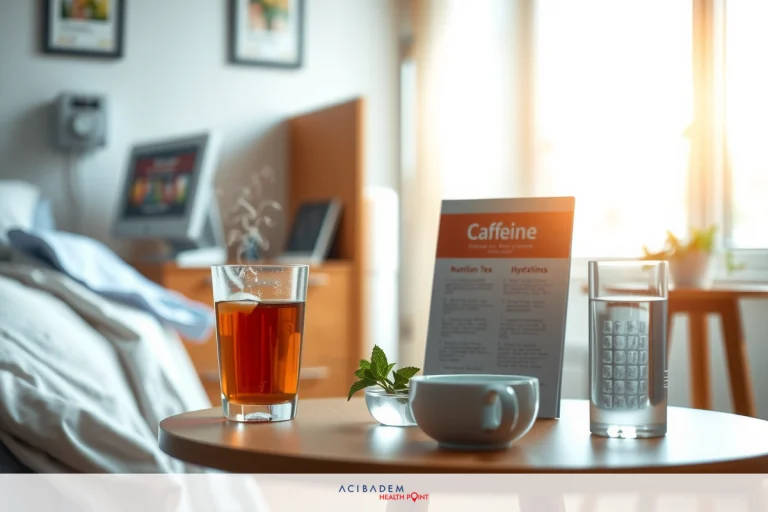Can You Drink Tea After Bariatric Surgery?
Can You Drink Tea After Bariatric Surgery? Bariatric surgery is a significant step towards improving one’s health and managing weight. The post-surgery journey involves numerous lifestyle changes, especially concerning diet and hydration. Among the various dietary considerations that patients need to be aware of, beverage choices play an essential role.
Tea, being a popular beverage worldwide, often raises questions among bariatric surgery patients. They are keen to know if they can continue to enjoy their favorite tea post-surgery without compromising their health or recovery. This article provides useful insights into the role of tea in a post-bariatric surgery diet and the potential benefits and considerations associated with its consumption.
Beverage Options for Post-Surgery Diet
After undergoing bariatric surgery, maintaining a balanced and nutritious diet is crucial for promoting healing and supporting weight loss. As part of their dietary modifications, patients also need to consider their beverage consumption. Beverages can significantly contribute to the overall calorie intake and nutrition profile, and hence, it’s vital to make informed choices.
Water is the most recommended beverage option post-surgery as it provides hydration without adding unnecessary calories. However, patients are often advised to avoid drinking large amounts of fluids during meals to prevent discomfort. Instead, sipping on small quantities throughout the day can help maintain healthy hydration levels.
For those looking for variety in their beverage options, herbal teas can be a good choice. They are usually low in calories and can offer a soothing experience. It’s essential, however, to avoid teas with caffeine or added sugars as they can lead to dehydration or increase caloric intake. Non-carbonated, sugar-free drinks like infused water with lemon or cucumber slices could also be included for added flavor and freshness.
Protein shakes are another beneficial option for patients post-bariatric surgery. They not only help meet the protein requirements but also keep you satiated for longer periods. However, it’s crucial to select shakes that are low in sugar and fats.
Despite these recommendations, it’s always best to consult your healthcare provider or a dietitian before making any significant changes to your beverage consumption post-surgery. They can provide personalized advice based on your current health status and nutritional needs.

The Role of Tea in a Healthy Hydration Routine
Including tea in a post-bariatric surgery diet can be beneficial owing to its potential health benefits. For starters, tea is a natural source of antioxidants, which can support overall health and wellness. It also offers variety in flavor and can be a comforting addition to the daily routine. However, it’s important to remember that not all teas are created equal, and some might be more suitable for bariatric patients than others.
Herbal teas, for instance, are often a good choice. They are typically caffeine-free and come in a wide range of flavors like chamomile, peppermint, or ginger. These types of tea can not only provide hydration but also soothe the digestive system, which can be particularly beneficial after surgery. Moreover, herbal teas do not contain calories unless sweetened, contributing positively to the calorie-controlled diet necessary after bariatric surgery.
On the other hand, caffeinated teas such as green tea or black tea need to be consumed in moderation. While they do offer some health benefits like boosting metabolism and providing antioxidants, they could potentially lead to dehydration if consumed in large quantities due to their diuretic properties. Therefore, it’s recommended to balance the intake of caffeinated tea with plenty of water and other non-caffeinated beverages.
Choosing unsweetened tea is another key consideration. Adding sugar or honey can increase the calorific value of the tea, which is not ideal for weight management post-surgery. Alternatively, one could consider natural sweeteners like stevia that do not add calories while providing the desired sweetness.
As always, it’s essential to consult with your healthcare provider or dietitian before making any significant changes to your beverage consumption. They can guide you on the right types and amounts of tea suitable for your specific needs and circumstances.
Frequently Asked Questions
Is it safe to drink tea after bariatric surgery?
Yes, it is generally safe to drink tea after bariatric surgery. However, it is important to choose the right types of tea and consume them in moderation. Opt for herbal teas that are caffeine-free and do not contain added sugars. It's also crucial to stay hydrated by drinking plenty of water alongside tea.
What types of tea are recommended after bariatric surgery?
Herbal teas are often recommended after bariatric surgery due to their caffeine-free nature and wide range of flavors. Chamomile, peppermint, ginger, and hibiscus teas are popular choices. These teas can provide hydration and offer soothing effects on the digestive system without adding unnecessary calories.
How much tea can I drink after bariatric surgery?
The amount of tea you can drink after bariatric surgery may vary depending on your overall fluid intake and individual tolerance. It is generally recommended to limit the consumption of caffeinated teas and opt for herbal teas instead. As always, it's important to consult with your healthcare provider or dietitian to determine the appropriate amount of tea that fits into your post-surgery diet.
Can I add sweeteners to my tea after bariatric surgery?
It is best to avoid adding sugar or honey to your tea after bariatric surgery, as these can increase calorie intake and hinder weight management efforts. Instead, consider using natural sweeteners like stevia if desired. Remember to choose unsweetened or naturally sweet herbal teas to minimize the need for additional sweeteners.
Are there any teas I should avoid after bariatric surgery?
While most herbal teas are considered safe after bariatric surgery, it's important to avoid certain teas that may have diuretic or stimulant effects. This includes teas with high caffeine content, such as green tea or black tea, which can potentially lead to dehydration if consumed in large quantities. It's always advisable to consult your healthcare provider or dietitian for personalized recommendations on tea selection post-surgery.











